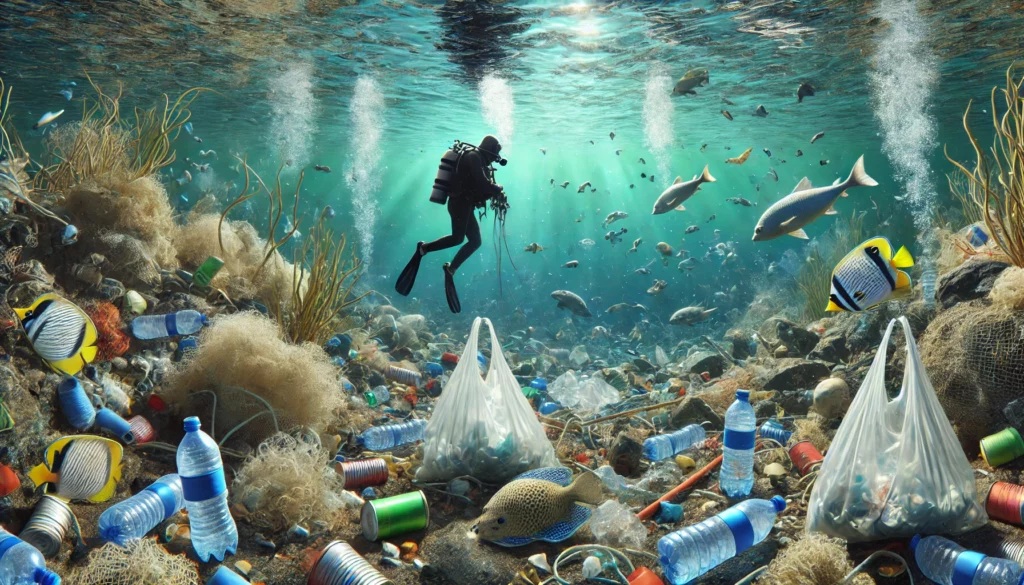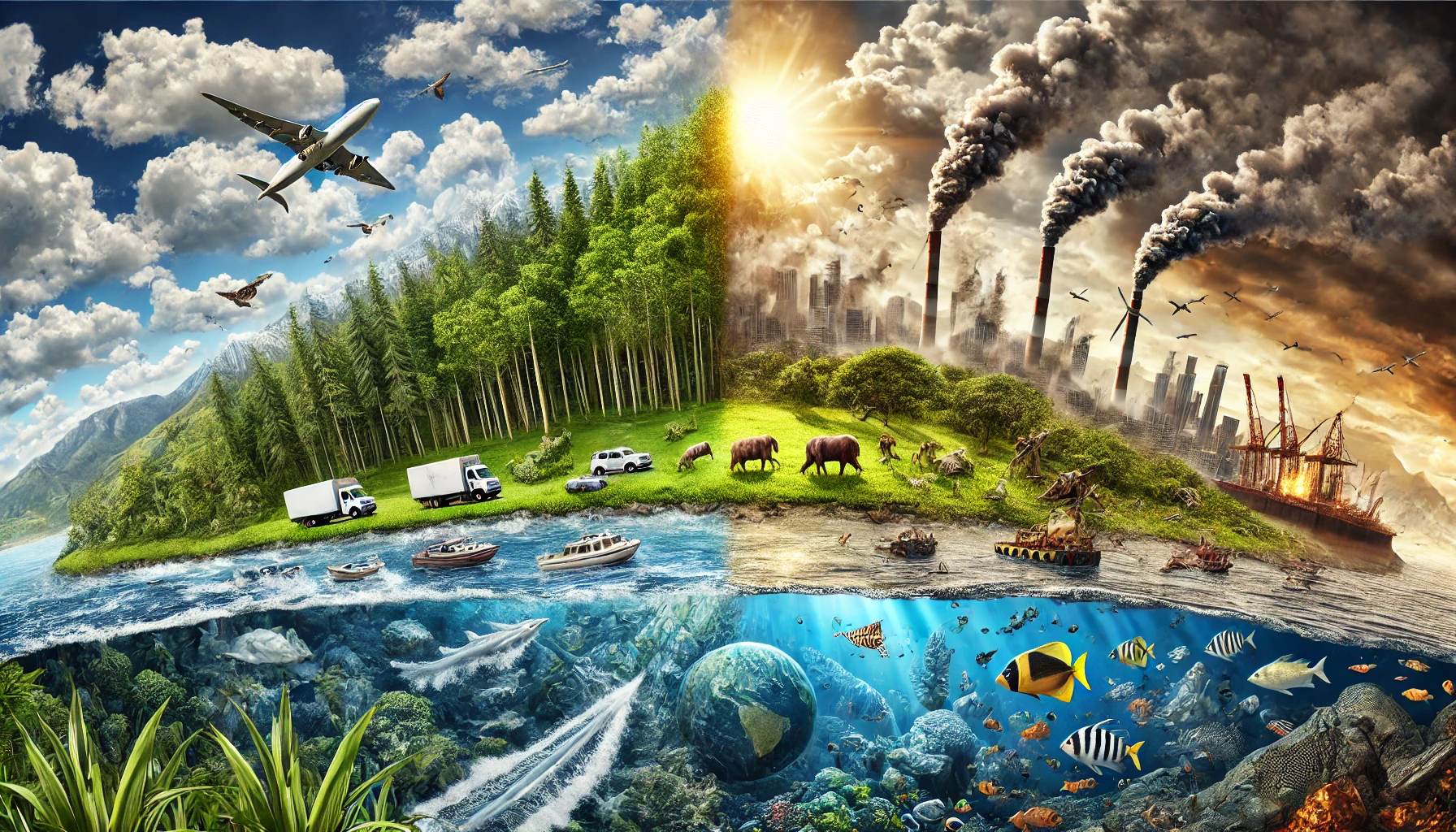Introduction
As we move further into 2024, the urgency to address ecological issues has never been more critical. From escalating climate change to rampant pollution, our planet faces unprecedented environmental challenges that threaten both ecosystems and human societies. This article delves into the most pressing ecological issues of 2024, highlighting the severity of these problems and the steps we must take to mitigate their impact.
Climate Change and Extreme Weather Events
One of the most pressing issues of 2024 is the accelerating pace of climate change. Global temperatures continue to rise, with recent years consistently breaking heat records. This warming trend is not only altering weather patterns but also intensifying extreme weather events such as hurricanes, wildfires, and floods. The increasing frequency and severity of these events have devastating impacts on communities worldwide, leading to loss of life, displacement, and economic hardship.
For instance, hurricanes are becoming more powerful and frequent due to the warmer ocean temperatures. The Atlantic hurricane season of 2023 was one of the most active on record, and this trend is expected to continue into 2024 (Earth.Org) (World Economic Forum). Similarly, wildfires have become a year-round threat in many regions, with California experiencing its largest wildfire season to date in 2020, a trend that shows no signs of abating (Earth.Org).
The socioeconomic consequences of extreme weather events are profound. In addition to the immediate impacts on human life and property, these events strain public resources and disrupt economic activities. For example, floods in South Asia in 2023 displaced millions of people and caused billions of dollars in damages (Conserve Energy Future). Addressing climate change requires both mitigation and adaptation strategies. Mitigation efforts include reducing greenhouse gas emissions through renewable energy sources and energy efficiency measures. Adaptation strategies involve enhancing infrastructure resilience and developing early warning systems to better prepare for and respond to extreme weather events.
Biodiversity Loss
Biodiversity loss is another critical issue facing our planet in 2024. The rate of species extinction is accelerating, driven by habitat destruction, pollution, climate change, and overexploitation of natural resources. This loss of biodiversity threatens the stability of ecosystems and the services they provide, such as pollination, water purification, and climate regulation.
The Amazon rainforest, one of the most biodiverse regions on Earth, continues to suffer from deforestation at an alarming rate. Despite efforts to curb illegal logging and land clearing for agriculture, large swathes of forest are still being destroyed (Earth.Org). This not only impacts the countless species that call the Amazon home but also contributes to climate change, as forests play a crucial role in carbon sequestration.
Coral reefs, which support a quarter of all marine species, are also in peril. Rising sea temperatures and ocean acidification are causing widespread coral bleaching, leading to the collapse of these vital ecosystems (Conserve Energy Future). In addition to their ecological importance, coral reefs provide significant economic benefits through tourism and fisheries, highlighting the far-reaching consequences of their decline.
Conservation efforts are crucial in combating biodiversity loss. Protected areas, restoration projects, and sustainable resource management practices are essential strategies. International cooperation and strong policies are needed to ensure that biodiversity is preserved for future generations.
Pollution
Pollution remains a pervasive environmental problem in 2024, affecting air, water, and soil quality worldwide. Air pollution, primarily from industrial emissions and vehicle exhaust, poses significant health risks. The World Health Organization estimates that air pollution causes millions of premature deaths each year, particularly in densely populated urban areas (World Economic Forum).

Water pollution is another major concern, with industrial discharge, agricultural runoff, and plastic waste contaminating water bodies. Plastic pollution, in particular, has reached crisis levels, with millions of tons of plastic entering the oceans annually. This pollution harms marine life, disrupts ecosystems, and poses risks to human health through the food chain (Conserve Energy Future).
Soil contamination from pesticides, heavy metals, and other pollutants also poses significant risks to agricultural productivity and human health. The contamination of soil affects crop yields and can lead to the accumulation of toxins in the food we eat.
Addressing pollution requires comprehensive solutions, including stricter regulations, technological innovations, and public awareness campaigns. Efforts to reduce single-use plastics, improve waste management, and transition to cleaner energy sources are critical steps in mitigating the impact of pollution on the environment and human health.
Resource Depletion and Waste Management
The unsustainable exploitation of natural resources continues to be a significant ecological issue. Deforestation, overfishing, and mining are depleting essential resources at an alarming rate, leading to habitat loss and environmental degradation. The demand for agricultural land, driven by population growth and dietary changes, is a major factor behind deforestation. Forests are cleared to make way for crops and livestock, resulting in the loss of biodiversity and the release of stored carbon into the atmosphere (Earth.Org).

Water scarcity is another pressing concern, with many regions facing chronic water shortages due to over-extraction, pollution, and climate change. The depletion of aquifers and the drying up of rivers and lakes threaten water supplies for drinking, agriculture, and industry (Earth.Org).
Waste management is a growing challenge, with the world generating millions of tons of waste each year. The inadequate disposal of waste leads to pollution and health hazards. Plastic waste, in particular, has become a global crisis, with vast amounts of plastic ending up in landfills and oceans. The circular economy model, which emphasizes reducing, reusing, and recycling, offers a promising solution to the waste problem. By minimizing waste and maximizing resource efficiency, we can reduce the environmental impact and promote sustainability (IBM – United States).
Ocean Health
The health of our oceans is inextricably linked to the well-being of the planet. Ocean acidification, caused by the absorption of excess atmospheric CO2, is disrupting marine ecosystems and harming species such as shellfish and corals. The rising acidity levels interfere with the ability of marine organisms to build shells and skeletons, threatening the survival of entire marine ecosystems (Conserve Energy Future).
The melting of polar ice caps is another significant concern. As global temperatures rise, ice in the Arctic and Antarctic regions is melting at unprecedented rates, contributing to sea-level rise and altering global climate patterns. This not only affects coastal communities but also has broader implications for weather systems and ocean currents (IBM – United States).
Overfishing is depleting fish stocks and threatening marine biodiversity. Unsustainable fishing practices and the demand for seafood are driving many species to the brink of extinction. Marine conservation efforts, such marine conservation efforts, such as establishing marine protected areas and enforcing sustainable fishing quotas, are essential to restoring fish populations and preserving ocean health (Earth.Org) (IBM – United States) (Conserve Energy Future).
International agreements and collaborations, like the Paris Agreement and various United Nations initiatives, play a crucial role in promoting ocean conservation. These agreements encourage countries to take collective action to reduce carbon emissions, protect marine biodiversity, and mitigate the effects of climate change on ocean health.
Conclusion
The ecological issues facing our planet in 2024 are numerous and complex, encompassing climate change, biodiversity loss, pollution, resource depletion, and ocean health. These challenges are interconnected and require coordinated global efforts to address effectively. The impact of these issues on ecosystems and human societies is profound, making it imperative for individuals, communities, governments, and businesses to take action.
Mitigation and adaptation strategies, such as transitioning to renewable energy, implementing sustainable agricultural practices, reducing waste, and protecting natural habitats, are essential steps in confronting these crises. Public awareness and education also play a vital role in driving change, as informed citizens are more likely to support and participate in environmental conservation efforts.
As we look towards the future, it is clear that addressing these ecological issues is not just a matter of environmental preservation but also a necessity for ensuring the health and well-being of current and future generations. By working together, we can confront the ecological crises of 2024 and build a more sustainable and resilient planet.
References
- Earth.org – 15 Biggest Environmental Problems of 2024
- World Economic Forum – These are the top 3 global climate risks we face globally
- IBM Blog – Sustainability trends: 5 issues to watch in 2024
- Conserve Energy Future – 20 Biggest Current Environmental Problems of 2024
FAQs on Ecological Issues in 2024
1. What are the main causes of climate change in 2024?
The primary causes of climate change in 2024 continue to be the burning of fossil fuels (coal, oil, and natural gas), deforestation, and industrial processes. These activities release significant amounts of greenhouse gases, such as carbon dioxide and methane, into the atmosphere, which trap heat and lead to global warming (Earth.Org) (World Economic Forum).
2. How does biodiversity loss impact human societies?
Biodiversity loss affects human societies by disrupting ecosystem services that are vital for survival and well-being. These services include pollination of crops, water purification, climate regulation, and disease control. Loss of biodiversity can lead to food insecurity, increased vulnerability to natural disasters, and economic losses, particularly in communities that rely heavily on natural resources (Conserve Energy Future) (IBM – United States).
3. What can individuals do to reduce plastic pollution?
Individuals can reduce plastic pollution by minimizing the use of single-use plastics, recycling appropriately, supporting products made from recycled materials, and participating in local clean-up efforts. Additionally, choosing alternatives to plastic, such as reusable bags, containers, and utensils, can significantly cut down on plastic waste (Earth.Org) (Conserve Energy Future).
4. Why is ocean acidification a critical issue, and what are its effects?
Ocean acidification is a critical issue because it alters the chemical composition of seawater, making it more acidic due to the absorption of excess carbon dioxide from the atmosphere. This process harms marine organisms, particularly those with calcium carbonate shells and skeletons, such as corals and shellfish. The decline in these species can disrupt marine food webs and negatively impact fisheries and coastal economies (IBM – United States) (Conserve Energy Future).
